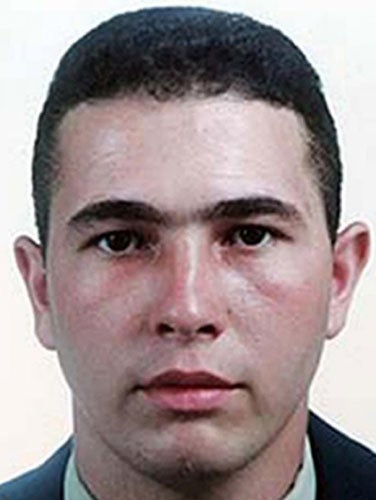De Menezes inquest could seal the fate of Blair as Met's chief

Your support helps us to tell the story
From reproductive rights to climate change to Big Tech, The Independent is on the ground when the story is developing. Whether it's investigating the financials of Elon Musk's pro-Trump PAC or producing our latest documentary, 'The A Word', which shines a light on the American women fighting for reproductive rights, we know how important it is to parse out the facts from the messaging.
At such a critical moment in US history, we need reporters on the ground. Your donation allows us to keep sending journalists to speak to both sides of the story.
The Independent is trusted by Americans across the entire political spectrum. And unlike many other quality news outlets, we choose not to lock Americans out of our reporting and analysis with paywalls. We believe quality journalism should be available to everyone, paid for by those who can afford it.
Your support makes all the difference.The final chapter in the three-year struggle to establish exactly what happened to cause the horrific death of Jean Charles de Menezes will begin in the august surroundings of the Oval cricket ground next week amid mounting concern from campaigners about the anonymity granted to police officers and the amount of evidence to be heard in public.
A total of 1,156 days after two armed police officers killed the Brazilian electrician in a Tube carriage, the John Major Room in the famous sporting arena will from Monday begin hearing testimony from dozens of witnesses – including nearly 50 police officers giving evidence anonymously – about the events that unfolded on 22 July 2005. Of all the dramatic encounters that have taken place at the Oval in its 140-year history, none will have been as charged with the lingering grief and anger underpinning the Jean Charles De Menezes inquest, which will be watched by the dead man's mother, Maria, when she arrives from her home in rural Brazil.
Among the members of the Metropolitan Police Service to take the stand will be officers C2 and C12 – the two men from Scotland Yard's CO19 firearms unit who fired seven shots into the 27-year-old man's head and face at point blank range in the belief he was a suicide bomber. It will be the first time that C2 and C12 –described in court documents as "the shooters" – have given a public account of their actions.
Yesterday, as the final dossiers of evidence were being prepared, campaigners said they were worried that key evidence could be heard in private and the anonymity granted to police officers was undermining the transparency of the proceedings.
In a statement, the Jean Charles de Menezes Family Campaign said: "While hopeful about what the inquest may bring, deep-seated concerns remain over how much evidence will be heard in public and what attempts the Metropolitan Police will make to keep what happened secret. We continue to call for such blanket anonymity to be lifted as we believe it undermines the key principles of transparency and accountability, and hinders public scrutiny of public officials."
Sir Michael Wright, the former High Court judge who will preside over the proceedings as coroner, has made it clear that apportioning blame for the death is not part of the remit of the 11 jurors who will be asked to decide on a verdict ranging from an accident to unlawful killing.
Despite the Yard's conviction last year in a health and safety prosecution at the Old Bailey, which found there had been "fundamental failures" by police, no senior officer has faced criminal or disciplinary proceedings for the death of Mr De Menezes. The Independent Police Complaints Commission (IPCC) has already said that it does not expect new evidence will emerge to change that position. But the findings of the jury will have wide ramifications.
The verdict could seal the fate of Sir Ian Blair, the Metropolitan Police Commissioner currently dogged by racism allegations and whose controversial tenure as Britain's most senior police officer was tested by an investigation into his claim that he was not told until 24 hours after the shooting of Mr De Menezes that the wrong man had been killed. That inquiry, by the IPCC, cleared Sir Ian of any wrongdoing but he is not expected to give evidence at the inquest.
The Independent understands that Brian Paddick, a former deputy assistant commissioner at the Yard and an outspoken critic of Sir Ian, is also on the list of witnesses to give evidence despite objections from his former employer.
The death of Mr De Menezes is already one of the most heavily scrutinised and investigated incidents in British legal history, with two IPCC investigations and last year's Old Bailey prosecution, which resulted in the Yard being fined £175,000. But despite the detailed investigations and proceedings, costing a total of at least £1.5m, questions remain which the De Menezes family hope could yet be answered.
The De Menezes Campaign said: "The Menezes family eagerly anticipate the inquest, which they hope will bring them closer to a definitive account of what happened. They hope it will reveal the whole truth about Jean's death, which his family believes was unlawful."
The questions include why Mr De Menezes was allowed to board two buses and a Tube train if police believed he was a suicide bomber, whether the "shoot-to-kill" policy of Operation Kratos was in use during the incident and the legality of the use of firearms by his pursuers. The extent to which answers will be gained remains unclear.
Join our commenting forum
Join thought-provoking conversations, follow other Independent readers and see their replies
Comments